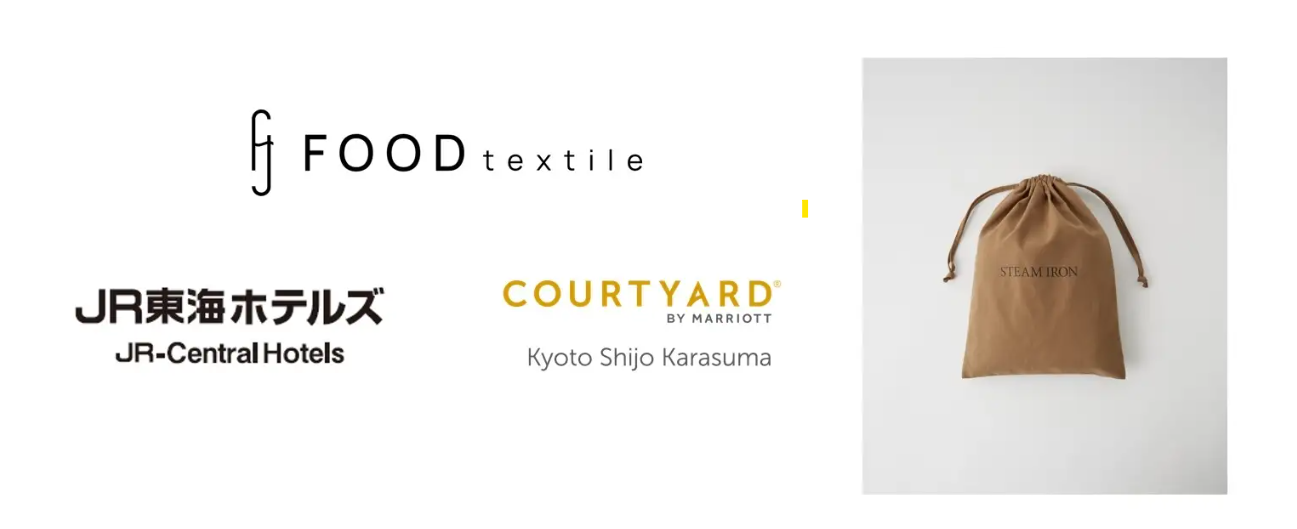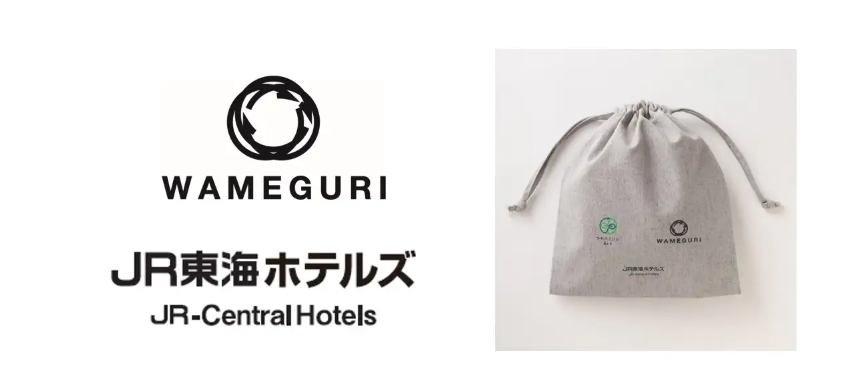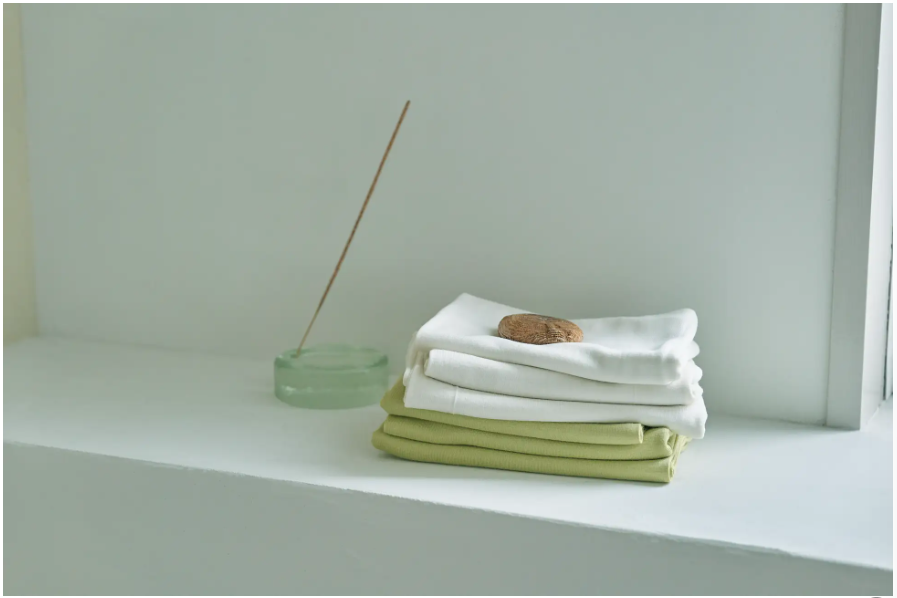| [Survey result summary] ◆About 30% of respondents feel that their awareness of environmental considerations in the fashion around them is "increasing." ◆More than 70% are working to reduce plastic waste by using eco bags. ◆ About 74% of consumers want to adopt sustainable fashion. ◆ The main reason for the above is the awareness of “social contribution”, which increased by about 10% in one year among men and women in their 20s and 30s. ◆Among social issues related to fashion, the most important issue is the working environment and wages. ◆Organic cotton is the most recognized sustainable material at 75.6%. buy it No. 1 as a material you want. ◆ Almost 90% of people agree with traceability* initiatives for fashion products. |
*Traceability is a state in which it is possible to know “who, where, and how” a product was made.
[Survey overview]
・Survey method: Internet survey ・Survey area: Nationwide ・Survey period: August 2020
・ Survey target: ・ 1,000 men and women aged 15 to 49 nationwide ・ Purchase their own clothes at least once every six months
- Approximately 30% of respondents feel that the environmental awareness of fashion around them is “increasing.”
- More than 70% are working on "use of eco bags"
On the other hand, when asked about "eco-friendly activities in everyday life", 1st place is "use eco bags" at 74.9%, and 2nd place is "refusal of plastic bags" at 58%. The impact of charging for plastic shopping bags with the aim of reducing garbage was seen.
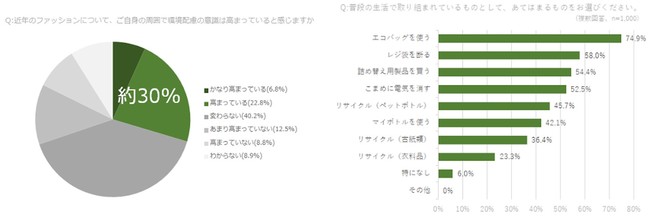
- Approximately 74% of consumers answered that they would like to adopt sustainable fashion that considers the environment and society.
- Men and women in their 20s and 30s want to adopt it, from "trend" to "contribution to society"
In response to the question, “Do you want to incorporate environmentally and socially conscious fashion such as sustainable fashion?” About 74% want to adopt eco-friendly fashion I understood it.
Also, when asked about the reason, 78.2% answered "because they are interested in contributing to society," indicating a high level of willingness to contribute to society.
In addition, compared to last year's data, it was found that the awareness of "social contribution" among men and women in their 20s and 30s increased by about 10% each. (*n=739) On the other hand, the number of “because it is a trend” decreased by around 10% among the same age group, indicating that sustainable fashion is not a temporary phenomenon but has become established as a social contribution activity among the younger generation. .
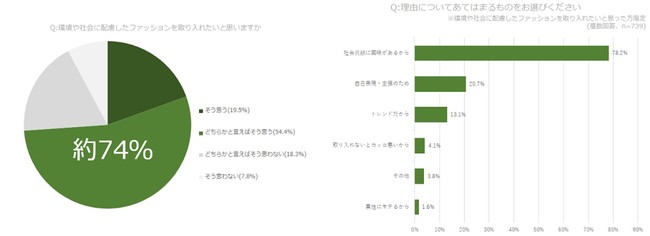
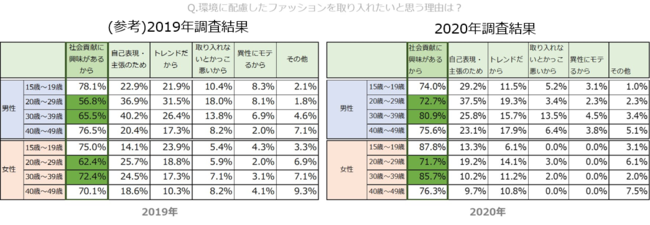
- 1 in 2 people recognize social challenges in fashion
- The most recognized issue that needs to be resolved is the “labor environment/wage problem”
Amidst growing awareness of social contribution, when asked about ``Among the issues in the manufacturing process of fashion products, what have you known about social issues in fashion'', ``work environment / wage problems'' is the highest item at 62.8%. This was followed by "animal cruelty," "marine pollution," and "soil pollution," with responses of around 50%.
In addition, when asked about "issues that you think should be resolved," about 30% answered "problems with working environment and wages," indicating that this is the most important social issue related to fashion. .
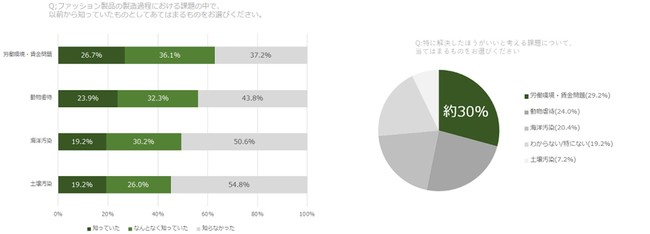
- Recognition rate 75.6%, sustainable material No. 1 to buy is "organic cotton"
- More than half of the respondents recognized these characteristics.
Also, ask yourself, "What kind of sustainable materials would you like to purchase and use?" , about 60% answered "organic cotton," which was the most common answer.
In addition, about 30% answered that they would like to purchase "recycled fibers" such as recycled polyester and recycled down, and "animal-free materials" that do not use animal hair.
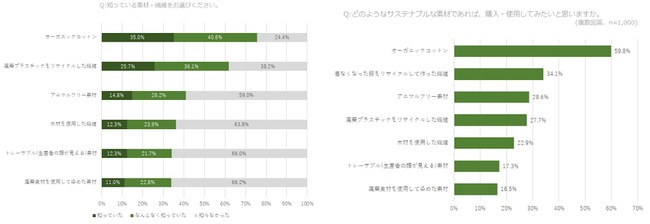
On the other hand, when asked about the characteristics of organic cotton, 62.5% of respondents answered that "the texture is no different from regular cotton," followed by "no pesticides are used, so there is no soil pollution." 53.2% of respondents answered that they will contribute to improvement. Since the number is almost the same as last year, more than half of the people not only know the name of organic cotton, but also recognize its characteristics, and organic cotton is no longer special among consumers. It seems that

- About 90% agree with traceability in fashion products.
- More than 80% answered that they would like to choose.
In addition, 84% of respondents answered that they would choose fashion products with traceability, revealing a high level of interest in traceability in fashion products.
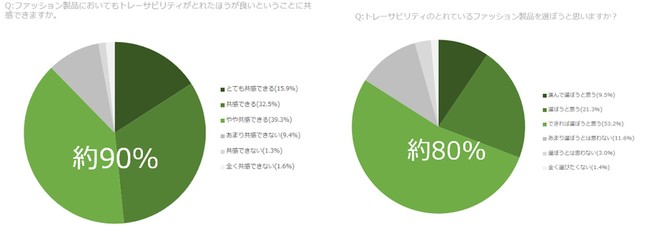
From the survey results
・Through this survey, many consumers are aware of social issues related to fashion,
It became clear that they want to incorporate fashion that considers the environment and society.
In particular, we found that the awareness of social contribution among people in their 20s and 30s improved by about 10%.
Also, among the reasons for wanting to adopt sustainable fashion of the same generation, the number of “because it is a trend” is
It's down around 10%. This is because sustainable fashion is not a temporary thing,
It can be said that it is becoming established as a social contribution activity among the younger generation.
・Continuing from last year, “organic cotton” was the most recognized sustainable material.
It is expensive and has become the No. 1 material I want to purchase. In addition to knowing their names, they also recognize their characteristics.
It seems that organic cotton is no longer something special among consumers.
・According to this survey, about 90% of people sympathize with traceable fashion products.
understood. The creation of traceable products in the fashion industry leads to consumer sympathy,
It may be a factor in purchasing the product.
[TOYOSHIMA Sustainable Project]
TOYOSHIMA is working to create a more “organic
While striving to spread and promote understanding of "cotton", through sustainable materials and brands such as "FOOD TEXTILE", a material dyed based on waste food, "Tencel", traceable organic cotton yarn, and "TRUECOTTON", a cellulose fiber derived from textile plants, Going forward, we will continue to promote sustainable corporate activities, such as developing and selling products that are friendly to society and the global environment.

■Toyoshima & Co., Ltd.
Founded in 1841. In our nearly 180-year history, we have expanded our business domain in response to the changing times. Currently, the fashion industry Japan is engaged in a series of processes from purchasing and selling raw materials, yarns, and fabrics from all over the world, and from planning to production management and delivery of final products.
We are developing our business comprehensively in all processes. In addition, as a sustainable lifestyle provider,
We develop and provide various sustainable materials, invest in tech ventures, and promote the development of smart wear.
. Since 2019, the statement "MY WILL" has been
We are putting forth our stance.










